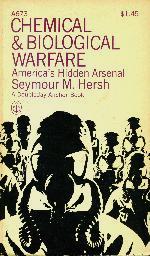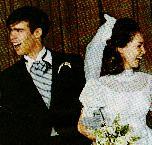
IMAGES OF AMERICA, 1968
From Life's special issue, "The Incredible Year: '68": Death in Vietnam (kids), Memphis (Martin Luther King), Los Angeles (RFK); Chicago cop from Magnum's America in Crisis; & (again Life) newlyweds David & Julie (Nixon) Eisenhower
|
An American Education
Real politics
In Cold War America
At 66 Pearl Street I had painted my bedroom pure white ("but white's just for ceilings") and plastered the walls with pictures, texts.
A page from Avant Garde (glossy, trendy and short lived) of Marines on Iwo Jima -- raising a giant flower. Quotes from Epictetus ("Deus est mortali invare mortalem" -- God is man helping man); Erich Fromm ("The unsuccessful revolutionary is a criminal, the successful one, a statesman").
And Robert F Kennedy.
-
"Each time a man stands up for an ideal, or acts to improve the lot of others, or strikes out against injustice, he sends forth a tiny ripple of hope, and crossing each other from a million different centers of energy and daring, these ripples build a current that can sweep down the mightiest walls of oppression and resistance.
"Our future may lay beyond our vision, but it is not completely beyond our control. It is the shaping impulse of America that neither fate, nor nature, nor the irresistible tides of history, but the work of our own hand, matched to reason and principle, that will determine our destiny. There is pride in that, even arrogance, but there is also evidence and truth. In any event, it is the only way we can live.
"Some men see things as they are and say why. I dream things that never were and say why not."
But America's shaping impulse had gone madly awry. Too few who saw things said anything at all, let alone "why." Robert Kennedy was dead. Richard Nixon was in the White House, President of the United States, then and for too long to come.
On October 1, 1968, I had begun keeping a journal. Its first entry is a quote from black poet Langston Hughes: "Dreams deferred do explode." It was a Tuesday, I see, 1:28 pm, I no doubt at Boston State College, I think in the library. My own dreams -- hard to know at the best of times, those times decidedly not -- felt to me about to implode.
I'd hung out briefly with kids from the SDS, Students for a Democratic Society.
-
October 22, 9:56 am:
"SDS doesn't know its political ass from its elbow. They take action, it seems, totally without regard for the possible (and probable) consequences. Or do they want a conservative reaction? They're nuts if they do. They are about the most unrevolutionary rebels around. You can't buck one establishment by joining another. Communism is as dead as anything else."
November 15:
"Stop SDS [a button -- I'd drawn a copy -- with each S made a swastika, product of Young Americans for Freedom: right wing, racist -- and far bigger at BSC than the SDS]. I'm looking at one of those buttons right now (11:55 am). What I notice is the color, powder blue, the same as the helmets of the Chicago police. (I'd say Daley's Gestapo if I were in a different mood.)
"I realized last night that SDS is not revolutionary, because it doesn't do anything. It yells and gets noticed, but it does not act. It simply yells. 'Stop the fare hike! Tax the rich!' Agreed. But don't yell it. Investigate the real possibility of it. Act on it. Even if the action involves sabotaging the MTA, at least act.
"Stop SDS. It implies SDS is worth stopping."
I was in a funk so deep it settled to elitist reaction. I spent pages of that journal pondering (and late self critiquing) ideas on rule by the "the responsible" -- the "temperate, the rational" (I among them of course) -- who were forced to live under "laws which assume irresponsibility, intemperateness, and irrationality, in order to govern those whom the assumptions fit."
"There should be separate rules for Responsible and Irresponsible." It got worse.
-
"I like the Cynics' idea of brotherhood of all enlightened men. It seems valid. I like Epictetus' views on facing tyranny. I agree with them. They can have my body, but not my soul. Freedom is that realization. Let them kill me. They won't capture me. Suicide is a tactic. It fools the enemy.
"Omnis est nihil. [All is nothing] ... What is a body without a soul? A mass of obnoxious proteins & lipids, prone to acquire a bad odor. Dead. The walking dead surround us. Locker room stuffing. Grind away. Don't ask what for. You'll become insane looking for justification.
"Goodnight sour grapes. And flights of vultures sing thee to thy dung heap."
I may have consoled myself with Cynics and Stoics; in truth I was becoming a mean spirited wreck, skidding toward the abyss -- half hoping to fall in. I pondered the ethics of suicide, concluding it would be best to slash one's wrists over a toilet and, as a last act, flush it.
No point making a mess.
 DEFENSE BY DEATH
DEFENSE BY DEATH
Seymour Hersh on "America's Hidden Arsenal," 1969: Plague & nerve gas as mere military tactic
|
-
February 5, 1969, 12:30 pm:
"CBW CBW CBW ABM DoD
"Anthrax Tuleremia Plague Nerve gas
"VX VX VX
"Tell me it's a sane world. I dare you. ...
"If life has no basis and we are too gutless to kill ourselves, then the end goal must be to live the best possible life. And if one is selfless enough, to help insure that others do, too. And to take all those who want to hurt, to corrupt, to destroy, to rule, to overpower -- and tell them to take a flying fuck."
I don't think I'd been reading Existentialists. But I gave credit elsewhere: "Human society is a corruption upon the surface of a fleck of cosmic rubbish. I don't need it. Let it kill me. It won't capture me. Perhaps I'll stop being a victim. All sounds very paranoid, doesn't it? Good. So what. Thank you, Laing. ANARCHY."
Poor R D, that radical Brit antipsychiatrist, misread as usual.
Professor Jenko, strolling out of class with me once, said: "You know, you really shouldn't be here." He was right. But I had no place else to go, no money. I had checked out Boston University: tuition $4,000 a year. No go. So: the draft. The Army. Or....
-
October 7, 1968, 12:33 pm:
"Every time I hear a jet fly over I imagine what it would be like to be sitting in one of its soft seats, heading for Montreal or Toronto. God, it would be tough. But the whole idea has such appeal, and it increases every time I really think about this place."
November 26, 1968, 2:43 pm:
"Canada. A word which means escape, beauty, freedom to take a deep breath and feel new, to cry for a time, and start again. It's a myth, I know. But all myths are founded upon something of good basis.
"Is it escape backwards? Perhaps. Perhaps back to where there was time to find my soul. Know thyself. I don't yet. That's the problem."
 FIRST FLIGHT (AT LAST)
FIRST FLIGHT (AT LAST)
Northeast Airlines ticket out (at $14.70 US), Sept 16, 1969
|
They did. Or rather, a nice young man, C Quenneville on his gold lapel tag, did: with a little smile and two calm -- and hugely calming -- words: "No problem." The rest of the story, to date, is in Promiscuous Affections.
Was it, as I'd wondered, a flight backwards? Well: I never again paid an ounce of attention, but for voting, to electoral politics (for too many people the only kind; I found better ones). I resisted playing footsie with the sectarian left, no matter how hard they tried (and, with those of us in the gay movement, try, try they did).
I never again was an academic -- state college pathetic, prep school truant, or high school hard working. But I did read lots, and lots, of books. I never got a degree, not so much as a BA. As I've said, I missed it only when I had to write résumés, three of them. None ever got me a job: I never had need to offer them. I lucked into my jobs, lucking most into my work, real work, and my life.
I can't say for sure that I found my "soul." Such a subjective term; I'll let you judge if you like. But I did, surely and happily, find my life.
A few Bebouts did make it into the Ivy League. By the back door. Bill has worked for years at Radcliffe; Gary with an extension program in film at UCLA. And I, Canadian Ivy, at the University of Toronto Library.
All what the professoriat, I suppose, would call "support staff." Not academics. And thankfully. The view was still, as Henry Gibson on Laugh In used to say, "Veeerry interesting." If I had it to do all over again I wouldn't change a thing.
Well... maybe those two truly awful years at Boston State. I wish I could have done them, again, with those wondrous kids at Ayer High.
Next: Leaving America (And laying America to rest)
Go back to An American Education / Introduction
This page: http://www.rbebout.com/me/politics2.htm
February 2001 / Last revised: October 5, 2001
Rick Bébout © 2001 / rick@rbebout.com



